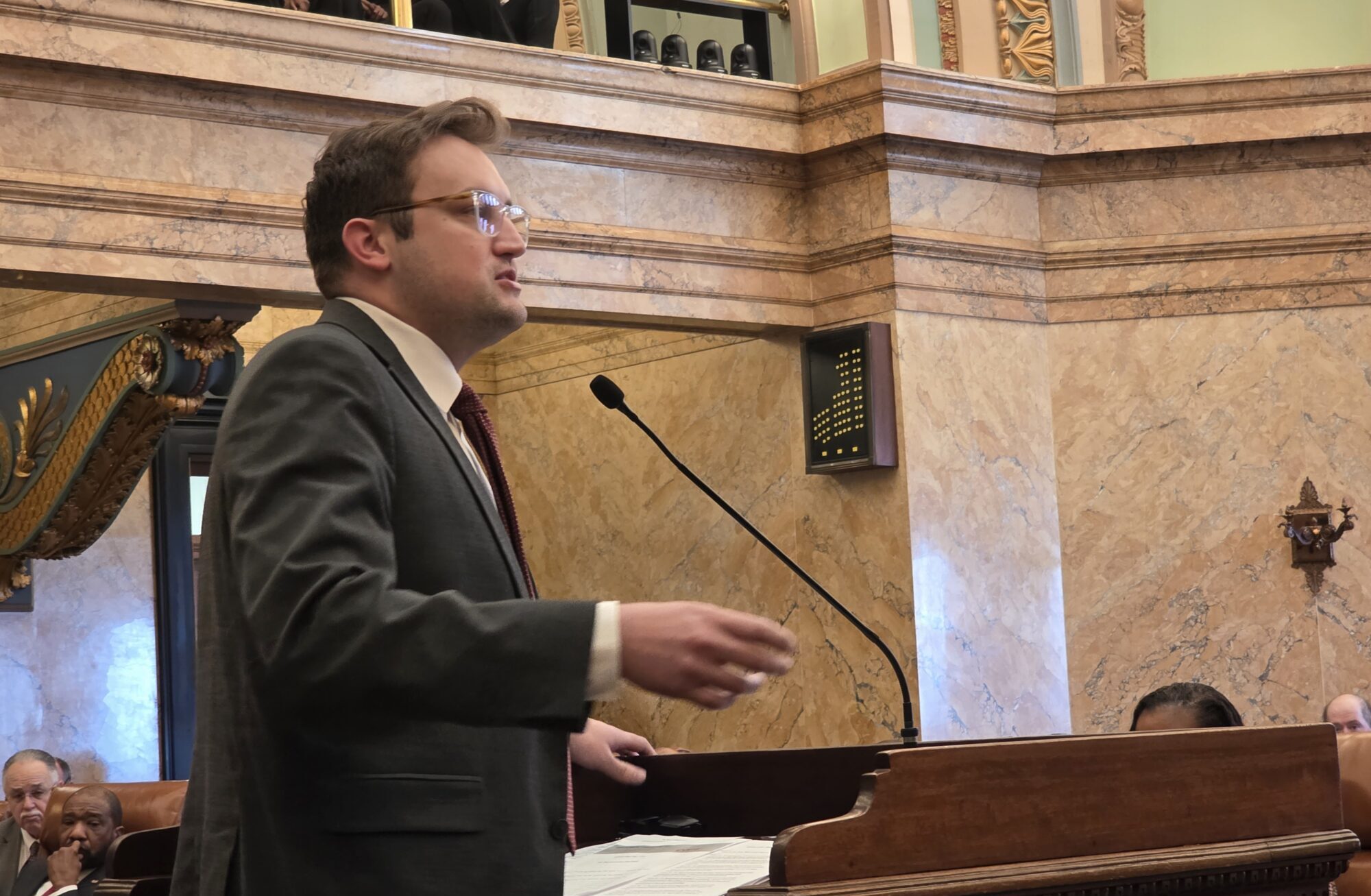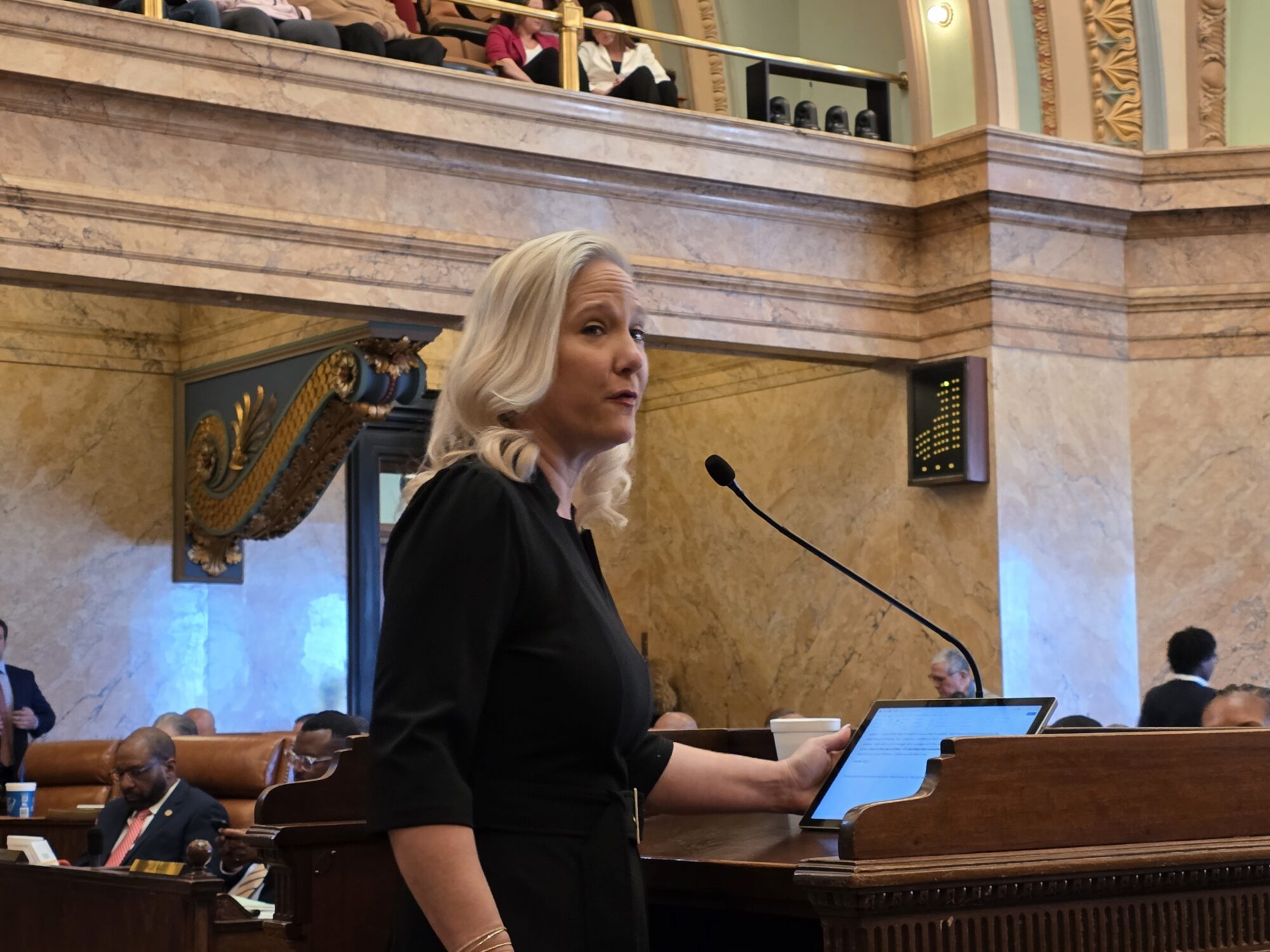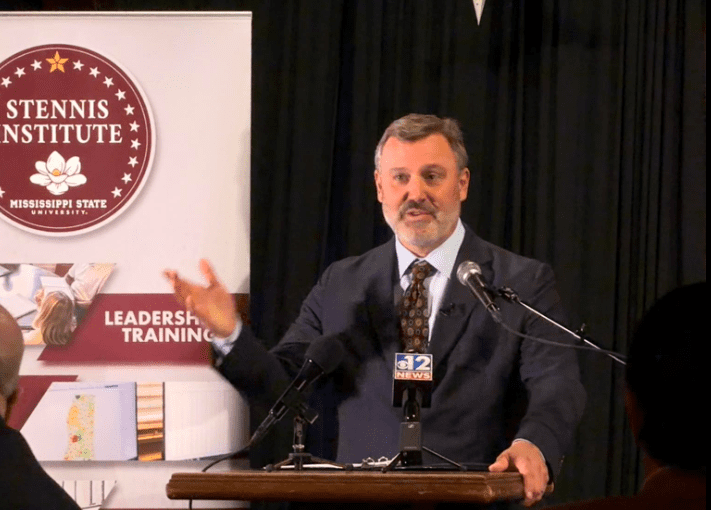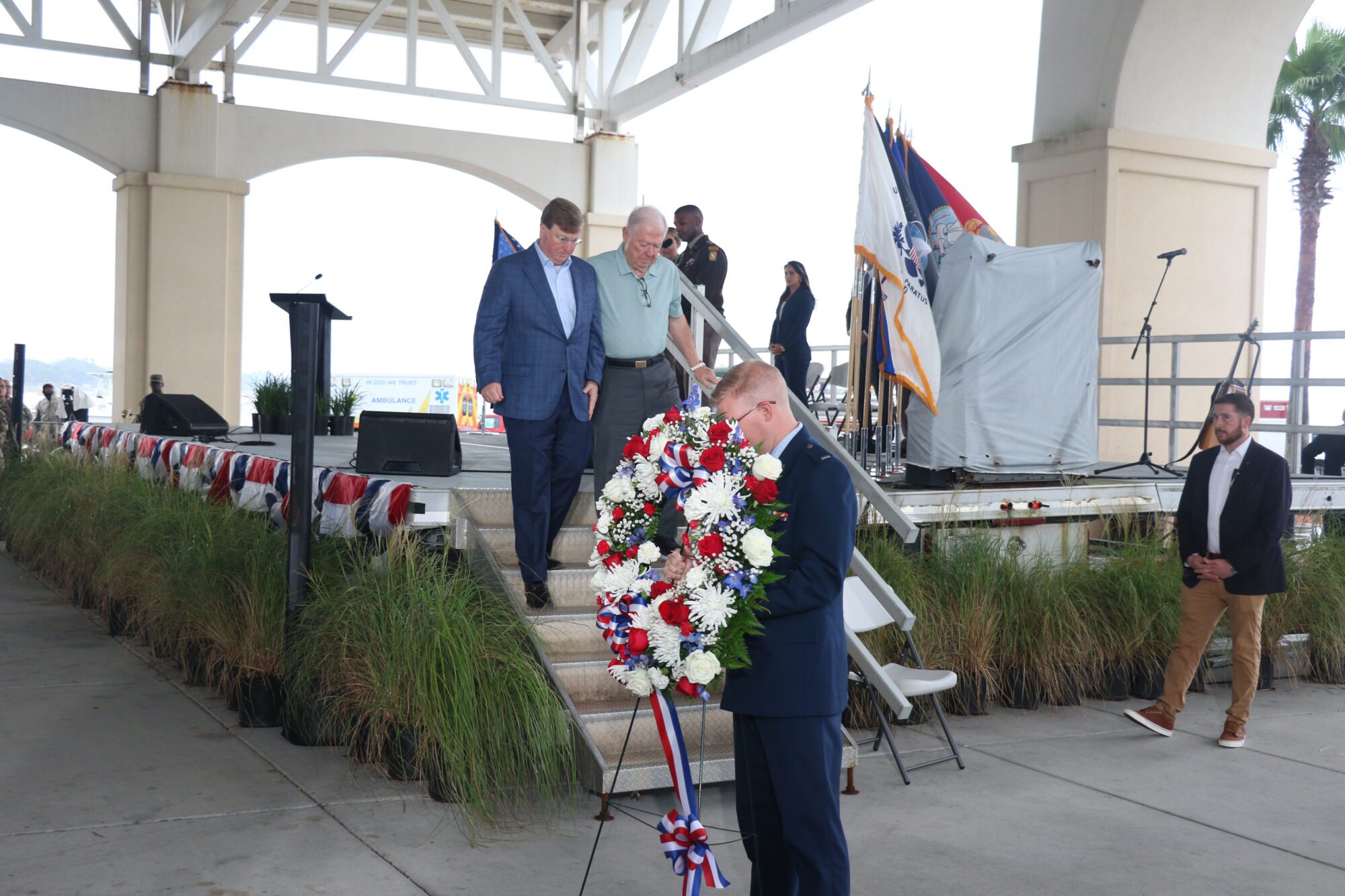
Governor Tate Reeves and former Gov. Haley Barbour at the 20th Anniversary of Hurricane Katrina even in Gulfport, August 29, 2025 (Photo by Jeremy Pittari | Magnolia Tribune)
- “Today is a reminder that Mississippi’s story is about victory,” Governor Reeves said.
On a rainy Friday morning in Gulfport, local, state and federal officials gathered under the Barksdale Pavilion in Jones Park to remember the devastation a hurricane named Katrina wrought on the Mississippi Gulf Coast two decades ago.
Bringing 28 feet of storm surge that later resulted in the term “slabbed” being coined across the Coast, Katrina left nothing much behind other than the resilience of the state’s residents.
That day, Mississippians demonstrated that they rely on neighborly connections, and a strong will to rebuild after the storm’s waters receded. Some 238 Mississippians lost their lives and tens of thousands of homes and buildings were destroyed. The damage across the state led to an emergency declaration being approved by the federal government for all of Mississippi’s 82 counties.
“And we were all left to pick up the pieces,” said Governor Tate Reeves.
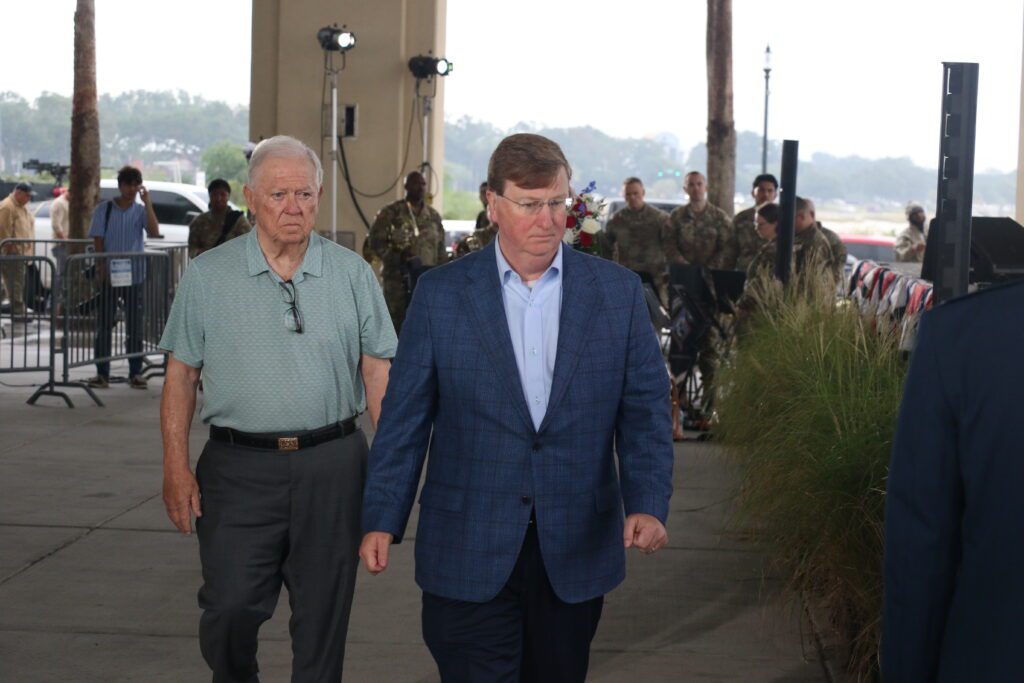
Other dignitaries who spoke during Friday’s event commemorating 20 years since the storm included Gulfport Mayor Hugh Keating, former Governor Haley Barbour, and U.S. Director of Intelligence Tulsi Gabbard.
Keating recalled riding out the storm in Gulfport with his family, saying that as the water began to enter their home, no amount of towels were going to be able to dry up the water.
“Four hours later, we had 8 feet of water in our house,” Keating said.
Barbour, who was governor when Katrina struck on August 29, 2005, took a moment to thank his wife Marsha, who not only stood by his side during his term in office, but played an integral role as his eyes and ears on the ground as she toured the devastated Gulf Coast in the hours after the storm. What she found was tens of thousands of damaged homes that gave a firsthand account of the meaning of “slabbed,” the term used to describe the concrete foundation being the only thing that remained of the homes and businesses after the winds died down and the waters made their way back to the Gulf. Barbour recalled what he saw while touring the area by helicopter the day after.
“It looked like the hand of God had wiped away the Coast. Utter obliteration,” Barbour described.
Some of his first, and most important, tasks in the disaster response were to restore the three things that would entice Mississippians to return – homes, jobs and schools.
“People weren’t going to come back if they didn’t have a place to stay,” Barbour said.
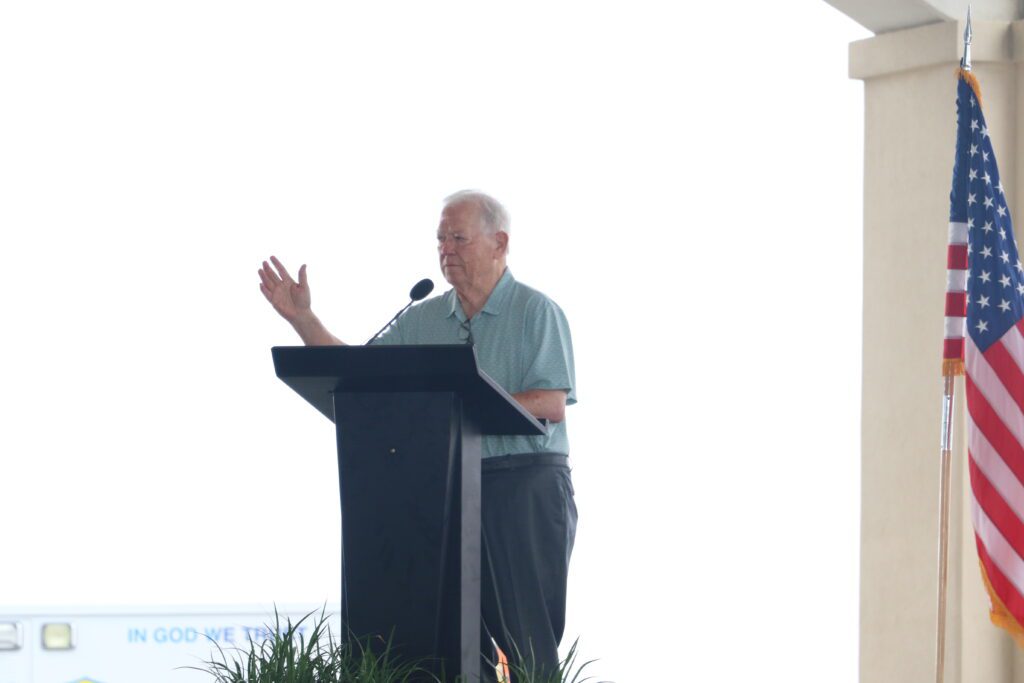
Gabbard, as she described how 1.5 million people evacuated prior to the storm’s landfall, said recalling Katrina made her think back to a recent disaster in her home state of Hawaii, where wildfires ravaged a small town on the island of Maui and took the lives of 102 people. The words “utter destruction” used by Barbour to describe the aftermath of the storm reminded her of what she saw two years ago.
“That was the same words that I heard used in the days after that fire in Maui,” Gabbard told the crowd.
Her experience dealing with that disaster showed her the importance of first responders and teamwork.
“I’ve seen firsthand in the wake of a terrible natural disaster when there is a failure of leadership, it is the people who are suffering the most who are harmed the most,” Gabbard described. “We are always better together when we stand together as Americans.”
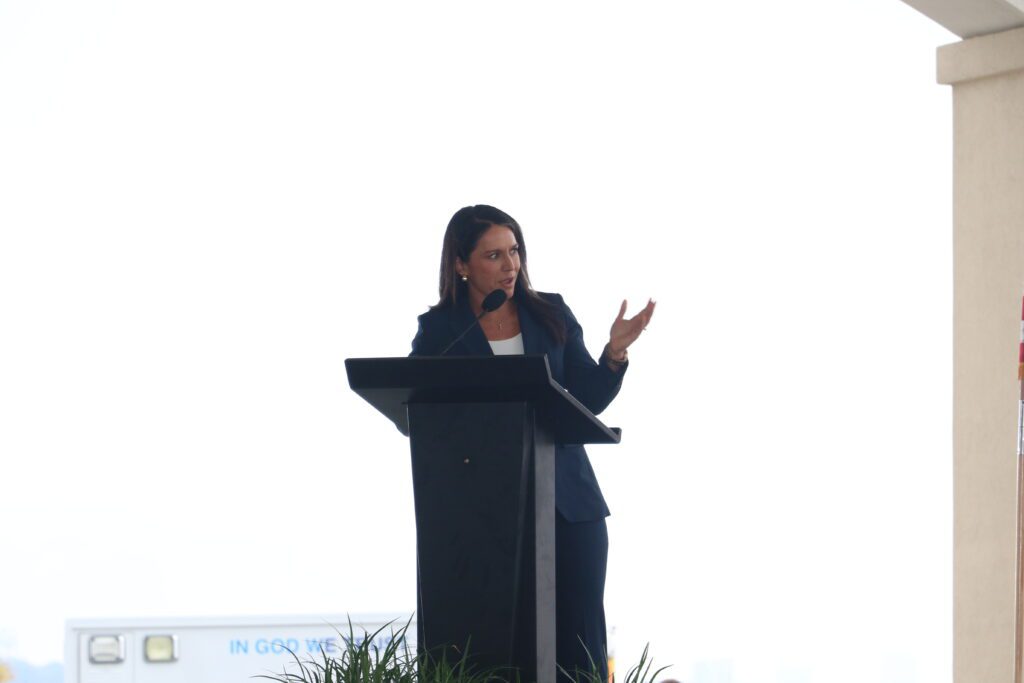
But along the Gulf Coast after Katrina transpired something much different than ineffective leadership. Governor Reeves said that not only did first responders put their own lives on hold to help those in need, but the neighbors and community members across Mississippi rolled up their sleeves to begin the rebuilding process, ensuring everyone had water, food and a place to stay.
“The most courageous were also the most charitable people on this earth,” Reeves said. “Hurricane Katrina may have reshaped our coastline and our state for years, but it did not change who we are as people. In fact, it highlighted the very spirit of Mississippi, it brought out the very best in each of us.”
Reeves added that not only did Mississippi build back better, but bigger as well.
“Today is a reminder that Mississippi’s story is about victory,” Reeves said.

